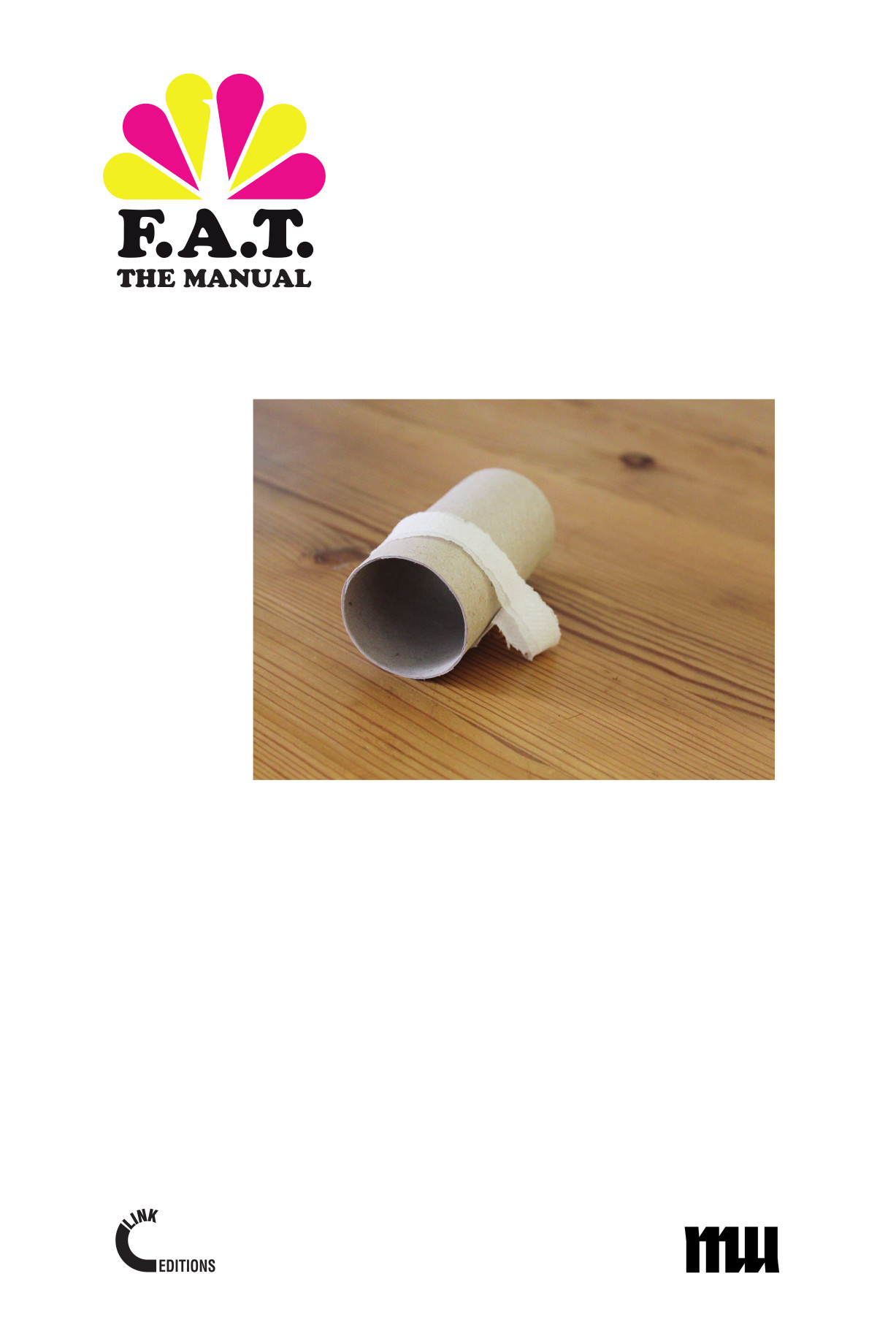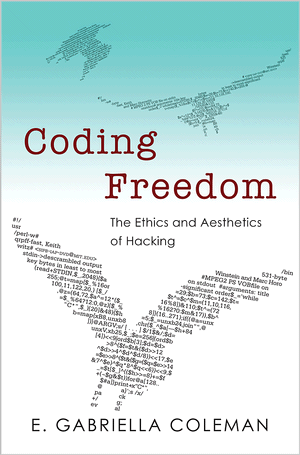Domenico Quaranta, Geraldine Juárez (eds.): The F.A.T. Manual (2013)
Filed under book | Tags: · art, diy, hacker culture, hacking, internet, technology

“In more than five years of activity, the Free Art and Technology Lab (F.A.T. Lab) produced an impressive series of projects, all developed with open source software, shared online and documented in a way that allows everybody to copy, improve, abuse or simply use them. This approach situates F.A.T. Lab in a long tradition of DIY, processual, sharable artistic practices based on instructionals, and reveals a democratic idea of art where Fluxus scores meet hacker culture (and rap music).
Featuring texts by Régine Debatty, Evan Roth, Domenico Quaranta, Geraldine Juárez and Randy Sarafan, The F.A.T. Manual is a selection of more that 100 projects, done in the belief that printing these bits on paper will allow them to spread in a different way, infiltrate other contexts, and germinate. An archive, a catalogue, a user manual and a software handbook documenting five years of thug life, pop culture and research and development.”
Publisher Link Editions, Brescia, 2013
Creative Commons Attribution-NonCommercial-ShareAlike 3.0 Unported License
ISBN 9781291577914
224 pages
PDF, PDF (36 MB, updated on 2024-2-3)
Comment (0)E. Gabriella Coleman: Coding Freedom: The Ethics and Aesthetics of Hacking (2012–) [EN, SC]
Filed under book | Tags: · aesthetics, anonymous, anthropology, code, computing, ethics, floss, free software, hacker culture, hacking, intellectual property, internet, internet activism, software, web

“Who are computer hackers? What is free software? And what does the emergence of a community dedicated to the production of free and open source software–and to hacking as a technical, aesthetic, and moral project–reveal about the values of contemporary liberalism? Exploring the rise and political significance of the free and open source software (F/OSS) movement in the United States and Europe, Coding Freedom details the ethics behind hackers’ devotion to F/OSS, the social codes that guide its production, and the political struggles through which hackers question the scope and direction of copyright and patent law. In telling the story of the F/OSS movement, the book unfolds a broader narrative involving computing, the politics of access, and intellectual property.
E. Gabriella Coleman tracks the ways in which hackers collaborate and examines passionate manifestos, hacker humor, free software project governance, and festive hacker conferences. Looking at the ways that hackers sustain their productive freedom, Coleman shows that these activists, driven by a commitment to their work, reformulate key ideals including free speech, transparency, and meritocracy, and refuse restrictive intellectual protections. Coleman demonstrates how hacking, so often marginalized or misunderstood, sheds light on the continuing relevance of liberalism in online collaboration.”
Publisher Princeton University Press, 2012
Creative Commons Attribution-NonCommercial-NoDerivs 3.0 License
ISBN 1400845297, 9781400845293
264 pages
Responses: Jo Bates, Denisa Kera, Brett Lunceford, Jorge Luis Zapico, Alexander Halavais, Stéphane Leman-Langlois, Ethan Zuckerman
Reviews: James Grimmelmann (Jotwell: Cyberlaw, 2012), David Banks (Cyborgology, 2012), Eric Raymond (2013), Cade Metz (Wired, 2013), Mike Doherty (Hashbang, 2013), Bruce Byfield (Linux Mag blog, 2013), Bryan Behrenshausen (OpenSource.com, 2013), Roy S. Gutterman (Journalism & Mass Communication Q, 2014), Tim Jordan (American J Sociology, 2014), Emily T. A. Earl (Techno_ethno, 2014), Anne Elizabeth Yaniga (Techno_ethno, 2014), Sebastian Kubitschko (Culture Machine, 2014).
Coding Freedom (English, updated on 2013-1-18, PDF, EPUB [updated on 2014-9-2])
Kodiranje slobode. Etika i estetika hakovanja (Serbo-Croatian, trans. Ljubica Gotić and Predrag Todić, 2014)
Journal of Peer Production, No. 2: Bio/Hardware Hacking (2012)
Filed under journal | Tags: · biology, biotechnology, diy biology, hacker culture, hackerspace, hacking, hardware hacking
During the past two decades, hacking has chiefly been associated with software and computers. This is changing with the surge of synthetic biology, fablabs and hackerspaces, all of which suggests the wider diffusion of hacking practices and hacker politics. Hardware development and biological science are about to be infused with the same kind of contestations and contradictions that already characterize software hacking. This is because hackers are not simply innovating new technology, but are at the same time discovering new ways of engaging with the world. The issue highlights how hacking practices are inscribed in and shaped by the cultural and political contexts in which the hackers find themselves, with implications for the ways hacker politics are framed.
Contributions by Denisa Kera, Maxigas, Sara Tocchetti, Paolo Magaudda, Morgan Meyer, Mitch Altman
Curated by Alessandro Delfanti, Johan Söderberg
Published in July 2012
ISSN 2213-5316
View online (HTML articles)
Comment (0)
